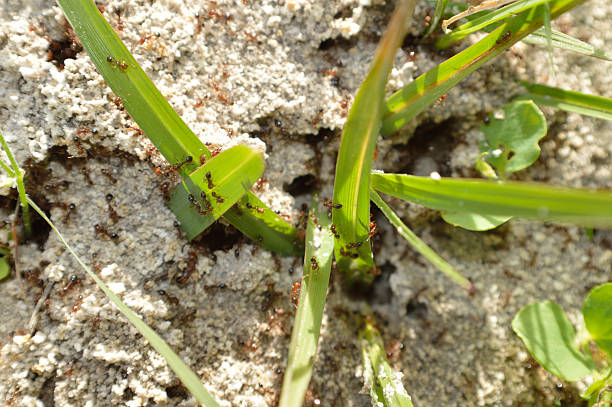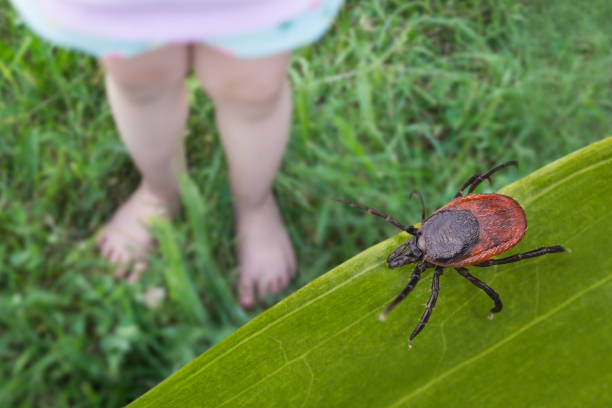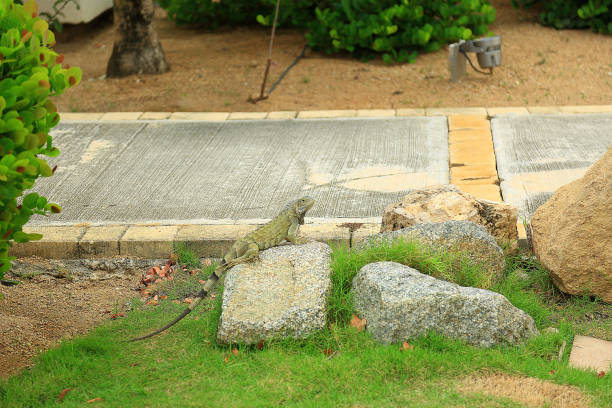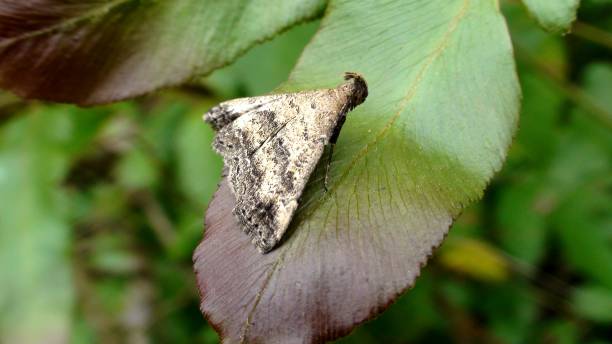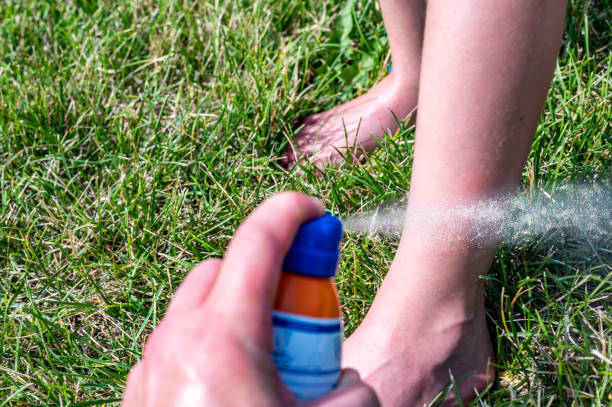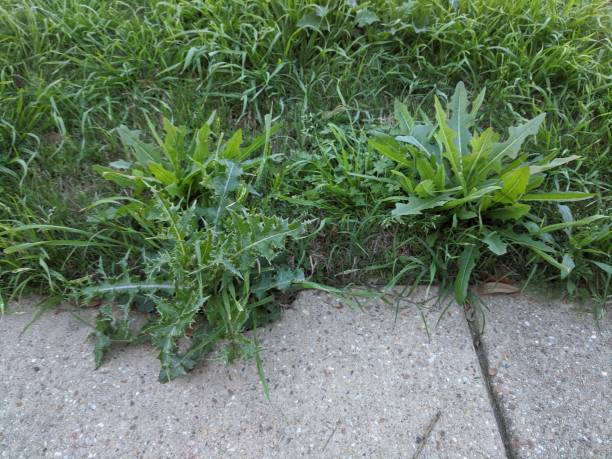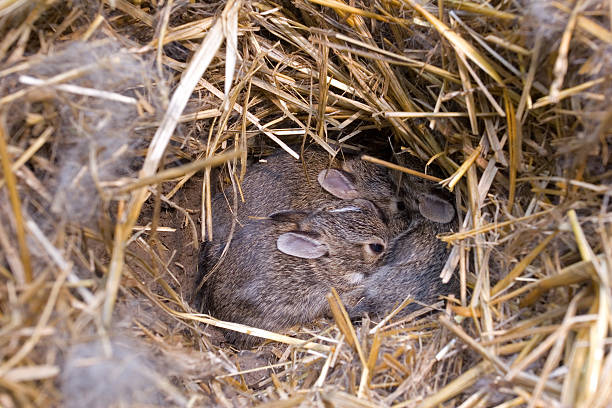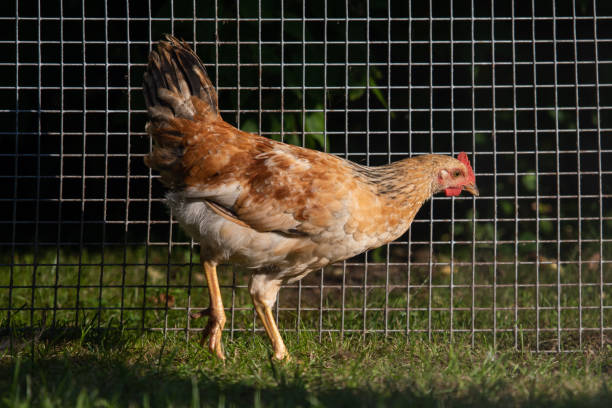Why Do I have So Many Ants in My Yard?
This post contains affiliate links. This means I will make a commission at no extra cost to you should you click through and make a purchase. Read the full disclosure here.
Having an ant infestation in your yard can be frustrating and puzzling. You might be wondering why these tiny creatures have made your yard their home. In this article, we will delve into the reasons behind ant infestations in yards and provide effective solutions to control them. Understanding ant behavior, identifying different ant species, and exploring natural and chemical control methods will empower you to regain control over your yard.
Understanding Ant Behavior
The Social Structure of Ants
Ants are social insects that live in highly organized colonies. Each colony typically consists of a queen, male ants, and worker ants. The queen’s primary role is reproduction, while worker ants are responsible for tasks such as foraging, nest building, and caring for the brood. Understanding the social structure of ants helps us comprehend their behavior patterns.
Foraging Behavior and Nesting Habits
Ants are constantly in search of food sources, which is why they might be drawn to your yard. They leave scent trails that guide other ants to the discovered food. Additionally, ants build nests in various locations, including underground, in tree stumps, or even inside your home. These nests serve as their central hub and are crucial for their survival.
Common Reasons for Ant Infestations in Yards
Attraction to Food Sources
One of the primary reasons ants invade yards is the presence of accessible food sources. They are attracted to sugary substances, crumbs, and even pet food left outdoors. Ants have a remarkable ability to find and exploit these food sources, leading to infestations. Identifying and eliminating these attractants is essential for effective ant control.
Availability of Water and Moisture
Just like humans, ants require water to survive. If your yard offers a consistent water source or has areas with high moisture levels, such as leaky faucets, birdbaths, or wet soil, it becomes an attractive habitat for ants. Addressing these water-related issues can significantly reduce ant infestations.
Nesting Sites in Yard Structures
Yard structures, such as fences, walls, and wooden decks, often provide suitable nesting sites for ants. Small gaps or cracks in these structures become inviting spaces for ant colonies. Identifying and sealing these entry points is crucial to prevent further infestations.
Identifying the Types of Ants in Your Yard
Common Ant Species in Yards
Several ant species are commonly found in yards, each with its unique characteristics and preferences. Fire ants, carpenter ants, pavement ants, and odorous house ants are some of the species you may encounter. Identifying the specific ant species helps determine the most effective control strategies.
Recognizing Ant Characteristics
Different ant species have distinctive physical features and behaviors. Fire ants are known for their reddish color and painful stings, while carpenter ants are larger and capable of damaging wooden structures. Observing and noting these characteristics can aid in proper identification and subsequent control measures.
Natural Ways to Control Ant Infestations
Eliminating Food Sources
Removing accessible food sources is crucial in discouraging ants from invading your yard. Regularly clean up fallen fruits, seal food containers tightly, and ensure outdoor trash bins are tightly closed. By denying ants access to food, you make your yard less attractive to them.
Removing Moisture and Water Sources
Addressing water-related issues is vital in ant control. Fix leaky outdoor faucets, divert water away from your home’s foundation, and ensure proper drainage in your yard. Eliminating excess moisture helps create an environment that is less appealing to ants.
Blocking Entry Points
Sealing off entry points is an effective way to prevent ants from entering your yard. Inspect your yard structures for cracks and crevices, and seal them using caulk or weatherstripping. By creating physical barriers, you make it harder for ants to invade your space.
Using Natural Deterrents
Several natural deterrents can help repel ants from your yard. These include substances like diatomaceous earth, vinegar, citrus peels, or essential oils with strong scents like peppermint or cinnamon. Using these natural remedies strategically can create a deterrent barrier that ants are less likely to cross.
Chemical Options for Ant Control
When to Consider Chemical Solutions
If natural methods fail to provide sufficient control, chemical options can be considered. However, it’s important to use chemicals as a last resort and strictly follow the instructions on the product label. Chemical treatments should be used cautiously, keeping in mind the potential impact on the environment and other organisms.
Types of Ant Control Products
Various ant control products, such as ant baits, sprays, and granules, are available in the market. Ant baits are especially effective as they use bait stations to attract ants, which then carry the bait back to the colony, effectively eliminating the entire colony. Selecting the appropriate product based on your specific ant infestation is crucial for successful control.
Proper Application of Chemicals
When using chemical products, it’s essential to follow the instructions provided. Apply the products in areas where ants are commonly found or near their entry points. Take precautions to protect yourself, children, and pets from exposure, and avoid using excessive amounts that may harm the environment.
Seeking Professional Help for Ant Infestations
Signs That Professional Assistance Is Needed
In some cases, ant infestations can be challenging to control on your own. Signs that indicate the need for professional help include persistent and widespread infestations, recurring ant problems despite your efforts, or the presence of ants in critical areas of your home, such as the kitchen or bathrooms. Professional pest control experts have the knowledge and experience to tackle severe ant infestations effectively.
Benefits of Hiring Pest Control Experts
Hiring pest control experts offers several advantages. They can accurately identify the ant species, provide tailored solutions based on the specific infestation, and safely apply control measures. Professional exterminators also have access to stronger and more specialized products that may not be available to consumers, enhancing the effectiveness of the treatment.
Prevention Tips for Long-Term Ant Control
Maintaining a Clean and Tidy Yard
Regularly maintaining your yard by mowing the grass, trimming vegetation, and removing debris reduces the attractiveness of your yard to ants. Keep garden beds tidy, prune trees and bushes away from structures, and minimize areas where ants can hide or nest.
Regular Inspections and Maintenance
Periodically inspect your yard and home for any signs of ant activity or potential entry points. Seal cracks in foundations, repair damaged screens, and maintain the integrity of yard structures. By being proactive and addressing issues promptly, you can prevent ant infestations from taking hold.
Conclusion
Dealing with an ant infestation in your yard can be challenging, but by understanding ant behavior, identifying the reasons for infestations, and employing appropriate control methods, you can regain control over your yard. Natural deterrents, proper sanitation practices, and strategic use of chemical treatments can effectively manage ant populations. Remember, prevention is key to long-term ant control, so regular maintenance and vigilance are necessary.
FAQs
What should I do if I have fire ants in my yard?
Fire ants can be aggressive and their stings can be painful. If you have fire ants in your yard, it’s best to seek professional help to safely eliminate the infestation. Professional exterminators have the necessary expertise and equipment to handle fire ant colonies effectively.
Are all ants harmful to my yard?
Not all ants are harmful to your yard. Some ants, like carpenter ants, can cause structural damage, while others may not pose a direct threat. However, ant infestations can still be a nuisance, and it’s best to control their populations to maintain a healthy yard environment.
Can ants cause damage to my home’s foundation?
While most ants do not directly damage foundations, some, like carpenter ants, can tunnel through wood, including structural elements. If you suspect an ant infestation near your home’s foundation, it’s crucial to address the issue promptly to prevent potential damage.
How long does it take to eliminate an ant infestation?
The time it takes to eliminate an ant infestation depends on various factors, such as the ant species, the size of the colony, and the control methods used. It can take anywhere from a few days to several weeks for complete elimination. Consistency in implementing control measures and addressing attractants is key to success.
Are there any eco-friendly ant control methods?
Yes, there are eco-friendly ant control methods available. Natural deterrents like diatomaceous earth, vinegar, and essential oils can be used to repel ants. Additionally, maintaining cleanliness, removing food and water sources, and sealing entry points are environmentally friendly practices that can help control ant infestations.

